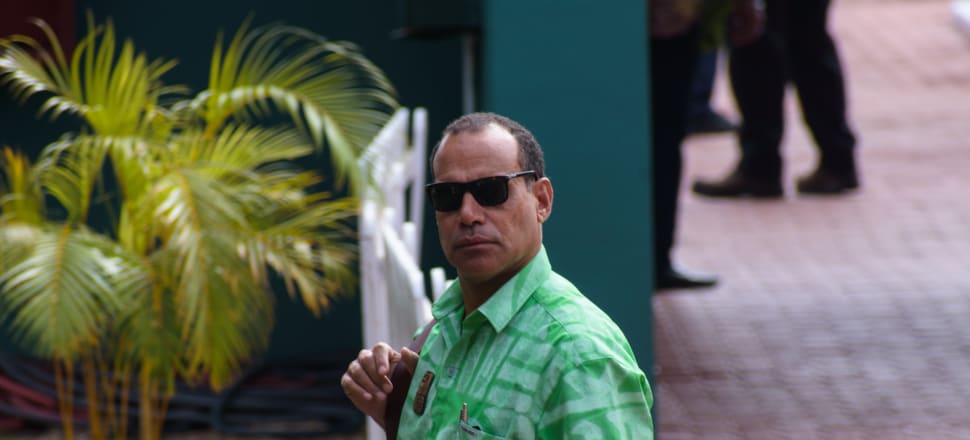
Vanuatu's outspoken Climate Change Minister, Ralph Regenvanu, has called on the incoming New Zealand government not to reverse the ban on offshore oil and gas exploration, Marc Daalder reports from Rarotonga
The National Party's plans to restore offshore oil and gas exploration in New Zealand have been criticised at the Pacific Island Forum in Cook Islands.
Vanuatu's Climate Change Minister, Ralph Regenvanu, who is attending the summit while the country's prime minister deals with the aftermath of the deadly Cyclone Lola, has urged the new government not to reverse the ban on fossil fuel exploring.
READ MORE: * New oil and gas not consistent with 1.5C * Shadow of COP28 climate summit looms over Pacific Islands Forum
"We call on them not to do it. To be in line with Paris, the 1.5 degree target, the science says you cannot do new fossil fuels," he told reporters on Tuesday evening, local time.
In September, the International Energy Agency reiterated that there can be no development of new oil and gas fields if the world wants to limit warming to 1.5C. In March, the Intergovernmental Panel on Climate Change reported that even half of known gas reserves and 30 percent of known oil reserves must stay in the ground for a shot at keeping warming to 2C.
"Significantly more reserves are expected to remain unburned if warming is limited to 1.5C," the panel found.
National's foreign affairs spokesperson Gerry Brownlee is attending the forum as the representative of the new government. Before departing for Rarotonga, he said he didn't expect Pacific countries to criticise National's plans.
Asked in Wellington whether the move to reverse the exploration ban would be well-received by Pacific leaders who are calling for a halt to all fossil fuel exploration, he replied, "Well, I don't think any of them would comment on New Zealand's domestic policy as we don't comment on theirs."
In Rarotonga, in response to Regenvanu's comments, Brownlee told Newsroom he hadn't underestimated the importance of fossil fuel extraction as an issue for the Pacific.
"But remember that New Zealand still consumes an enormous amount of fossil fuel. We import it, bring it in across the sea in diesel-guzzling ships to fill up our tanks. It's getting away from the more damaging aspects of fossil fuel to something that might be in a transition, like gas," he said.
"And then you look at the Pacific itself. The Pacific would be a pretty unliveable place in modern terms if it weren't for fossil fuel. And they are all entirely dependent on other countries extracting that fuel and supplying it to them. It's really important to focus on the long-term goal, which is the 2050 targets and Paris and to keep your commitment up to those."
Brownlee said he saw gas as a transition fuel but the party's commitment to Paris and current climate targets remained unchanged. As evidence, he touted National's policy to make it easier to consent new renewable generation and Fonterra's just-announced climate targets.
"There's no question that New Zealand is still very, very focused on meeting its obligations, despite the view that might be held about one aspect of our policy."
It would also be a commercial decision to extract – National was just making it an option again, he said.
Regenvanu has helped spearhead the Port Vila Call for a Fossil Fuel Free Pacific, alongside representatives from six Pacific nations. Among other things, the call asks countries to join the Beyond Oil and Gas Alliance, which requires members to take moves to end fossil fuel extraction.
New Zealand became an associate member of the alliance in 2021 because of the ban on offshore exploration, with full membership dependent on a further move to bar onshore exploration, which has not yet been taken.
If National were to reverse the ban, New Zealand would likely be made to withdraw from the group.







